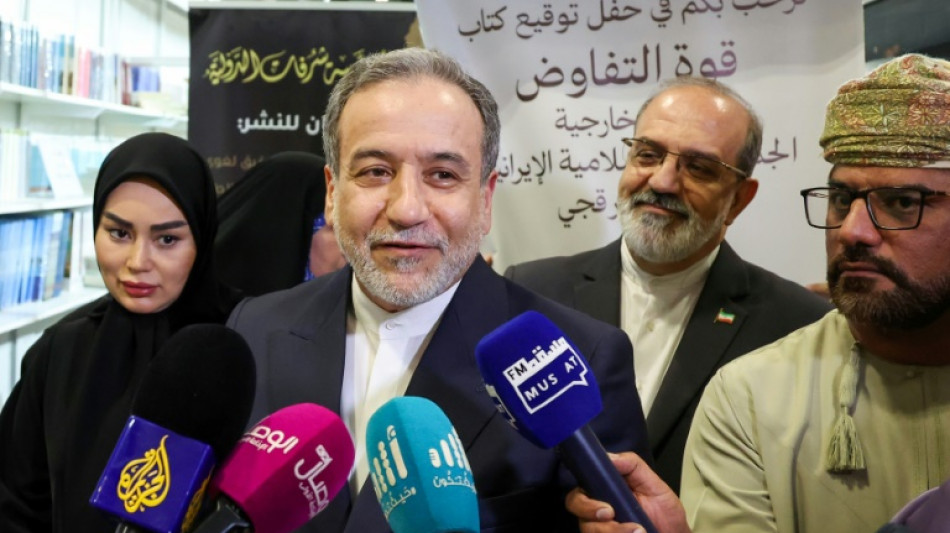
-
 Nawaz sparks Pakistan to five-wicket ODI win over West Indies
Nawaz sparks Pakistan to five-wicket ODI win over West Indies
-
Lions' Norris hospitalized after scary injury, NFL pre-season game suspended

-
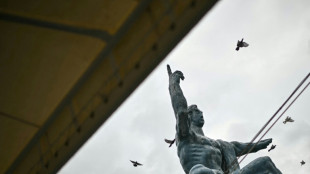 Restored Nagasaki bell rings in 80 years since A-bomb
Restored Nagasaki bell rings in 80 years since A-bomb
-
Putin-Trump summit: what we know so far
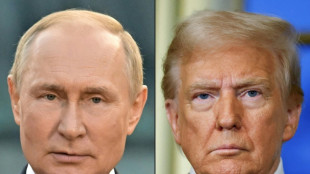
-
 Australia settle on Marsh and Head as T20 openers
Australia settle on Marsh and Head as T20 openers
-
New York declares total war on prolific rat population

-
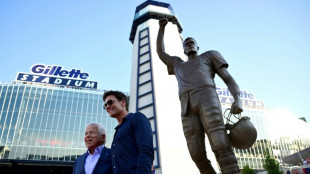 Patriots unveil statue honoring iconic quarterback Tom Brady
Patriots unveil statue honoring iconic quarterback Tom Brady
-
Slot's new-look Liverpool under the spotlight in Community Shield

-
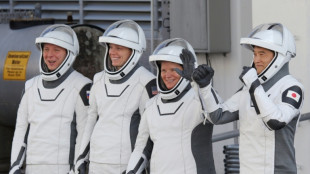 Five astronauts leave space station for trip back to Earth
Five astronauts leave space station for trip back to Earth
-
Trump and Putin to meet in Alaska next Friday
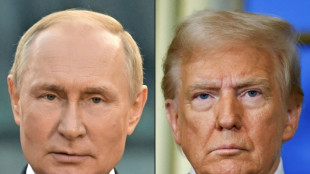
-
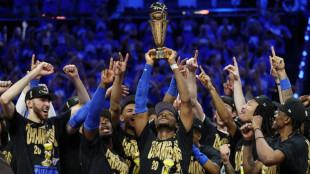 NBA to open season with blockbuster showdowns: report
NBA to open season with blockbuster showdowns: report
-
Brazil's Lula vetoes parts of environmental 'devastation bill'
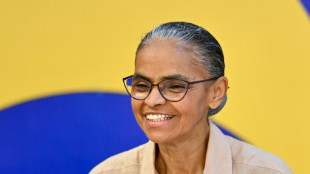
-
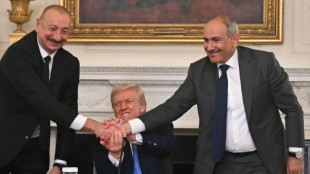 Trump says Armenia, Azerbaijan commit to end fighting 'forever'
Trump says Armenia, Azerbaijan commit to end fighting 'forever'
-
Toronto champion Shelton to start Cincy against Argentine outsider
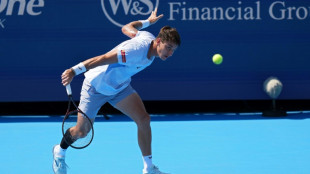
-
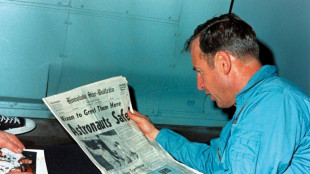 US astronaut Jim Lovell, commander of Apollo 13, dead at 97
US astronaut Jim Lovell, commander of Apollo 13, dead at 97
-
Trump says to meet Putin next Friday in Alaska
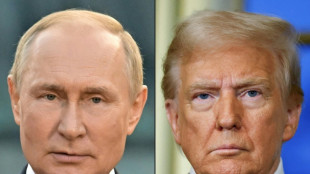
-
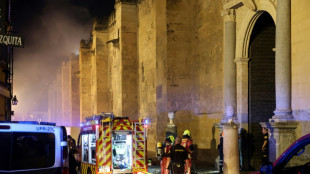 Fire extinguished, historic mosque-cathedral in southern Spain 'saved'
Fire extinguished, historic mosque-cathedral in southern Spain 'saved'
-
Trump demands $1bn from University of California over UCLA protests
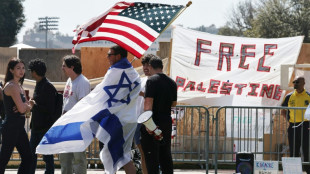
-
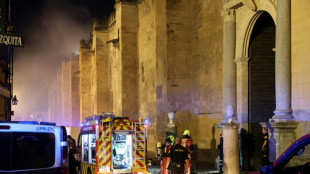 Fire contained, historic mosque-cathedral in southern Spain 'saved'
Fire contained, historic mosque-cathedral in southern Spain 'saved'
-
US health chief based vaccine cuts on misinformation, researchers say
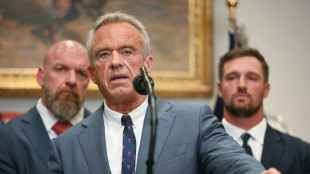
-
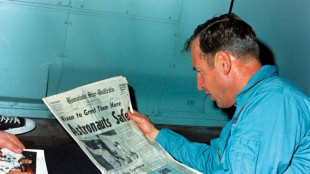 US astronaut Jim Lovell, commander of imperiled Apollo 13, dead at 97
US astronaut Jim Lovell, commander of imperiled Apollo 13, dead at 97
-
Trump says will meet with Putin 'very shortly'
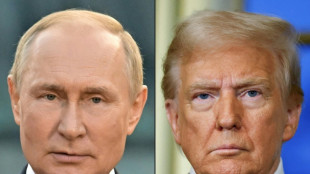
-
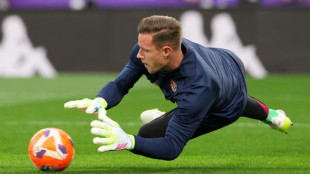 Barcelona reinstate Ter Stegen as captain
Barcelona reinstate Ter Stegen as captain
-
Fleetwood leads St. Jude in search of first US PGA Tour title

-
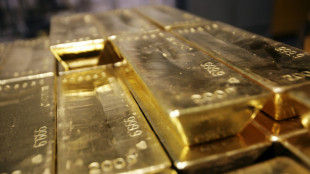 Gold futures hit record on US tariff shock; mixed day for stocks
Gold futures hit record on US tariff shock; mixed day for stocks
-
Trump says Armenia, Azerbaijan committed to end fighting 'forever'
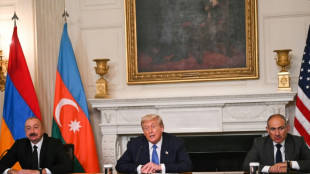
-
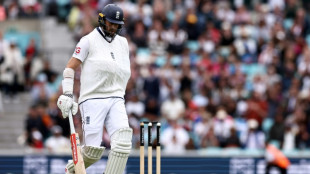 England's injured Woakes still has Ashes hopes
England's injured Woakes still has Ashes hopes
-
US astronaut Jim Lovell, Apollo 13 commander, dead at 97
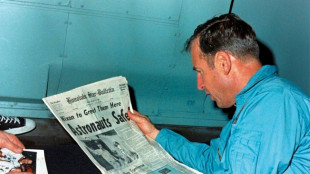
-
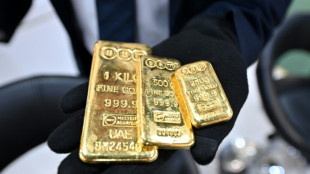 Swiss gold refining sector stung by US tariffs
Swiss gold refining sector stung by US tariffs
-
New Instagram location sharing feature sparks privacy fears
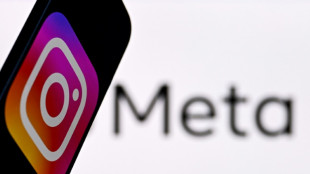
-
 Spain's Badosa withdraws from US Open
Spain's Badosa withdraws from US Open
-
Mexico seeks compensation from Adidas in cultural appropriation row

-
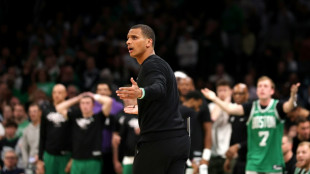 NBA Celtics sign Mazzulla to coaching contract extension
NBA Celtics sign Mazzulla to coaching contract extension
-
Swiss gold refining sector hits US tariff mine
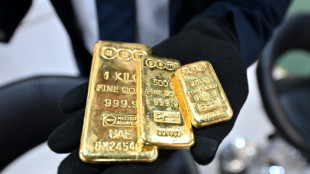
-
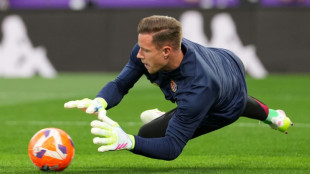 Ter Stegen responds after Barcelona strips him of captaincy
Ter Stegen responds after Barcelona strips him of captaincy
-
Chelsea's Broja joins Burnley on five-year deal

-
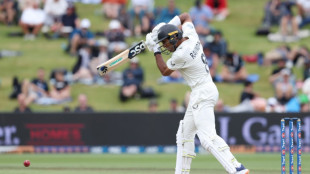 Three centurions as 'ruthless' New Zealand pile on runs against Zimbabwe
Three centurions as 'ruthless' New Zealand pile on runs against Zimbabwe
-
Three die in Greece as gales stoke fires, disrupt ferries
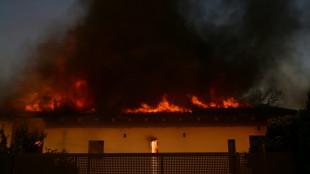
-
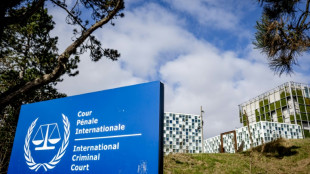 ICC unseals Libya war crimes warrant for militia officer
ICC unseals Libya war crimes warrant for militia officer
-
Montreal protagonists Mboko, Osaka out of Cincinnati Open

-
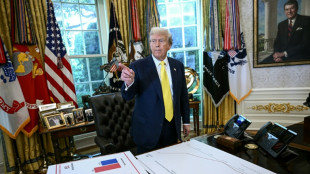 Trump says court halt of tariffs would cause 'Great Depression'
Trump says court halt of tariffs would cause 'Great Depression'
-
Glasner says demotion to Conference League would punish 'innocent' Palace
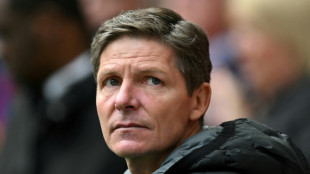
-
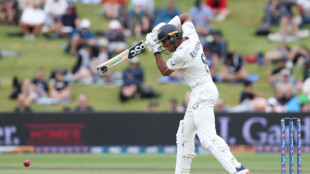 New Zealand build big total in 2nd Test against Zimbabwe
New Zealand build big total in 2nd Test against Zimbabwe
-
Trump hosts foes Armenia, Azerbaijan in his latest peace initiative
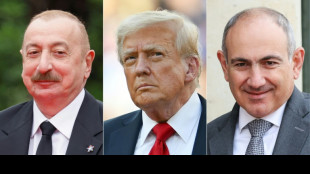
-
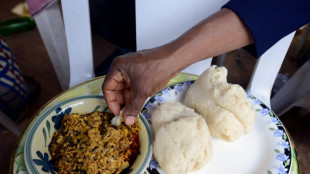 Nigerian scientists await return of Egusi seeds sent to space
Nigerian scientists await return of Egusi seeds sent to space
-
Pioneer spirit drives Swiss solar-powered plane altitude attempt
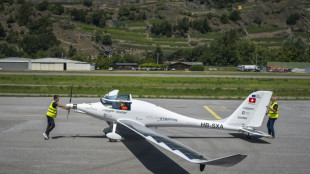
-
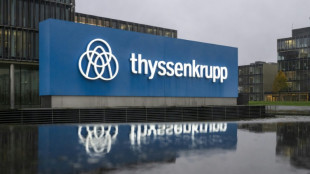 Thyssenkrupp to spin off marine division amid defence boom
Thyssenkrupp to spin off marine division amid defence boom
-
Vance and Lammy talk Gaza, fish as US VP starts UK holiday
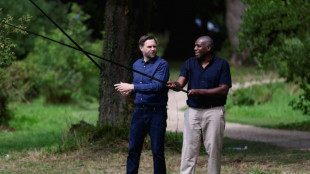
-
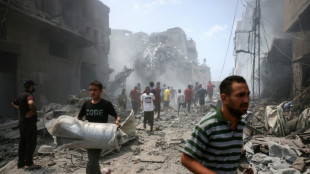 Israel plans to 'take control' of Gaza City, sparking wave of criticism
Israel plans to 'take control' of Gaza City, sparking wave of criticism
-
Putin taps key allies ahead of Trump summit, sanctions deadline
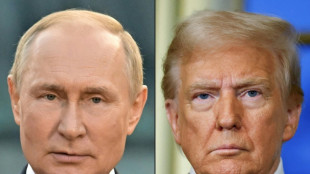
| RBGPF | 1.7% | 73.08 | $ | |
| CMSD | 0.25% | 23.58 | $ | |
| JRI | 0.19% | 13.435 | $ | |
| BCC | -1.34% | 82.09 | $ | |
| SCS | -0.76% | 15.88 | $ | |
| NGG | -1.51% | 71.01 | $ | |
| BCE | 2.34% | 24.35 | $ | |
| RIO | 1.76% | 61.86 | $ | |
| SCU | 0% | 12.72 | $ | |
| RELX | -2.2% | 48 | $ | |
| GSK | 0.58% | 37.8 | $ | |
| RYCEF | -0.14% | 14.42 | $ | |
| VOD | 0.88% | 11.36 | $ | |
| BTI | 0.96% | 57.24 | $ | |
| CMSC | 0.39% | 23.05 | $ | |
| AZN | -0.69% | 73.55 | $ | |
| BP | -0.15% | 34.14 | $ |

Iran, US discuss nuclear deal in third round of talks
The United States and Iran went into detail about a potential nuclear deal Saturday at their third consecutive round of talks, hoping to strike an accord that would ease regional tensions.
US special envoy Steve Witkoff and Iranian Foreign Minister Abbas Araghchi again led the talks, which this time included a technical-level meeting between experts from both sides.
The discussions via mediators in Muscat, the Omani capital, lasted more than seven hours, according to Iranian officials and state media.
"The expert and technical talks between the two delegations reached the stage of minute details about mutual demands and expectations," said a state TV reporter.
Oman's Foreign Minister Badr Albusaidi, who mediated the talks, said a fourth round is expected next Saturday.
"Talks will continue next week with a further high level meeting provisionally scheduled for May 3," Albusaidi posted on X, adding that "core principles, objectives and technical concerns were all addressed" at the latest meetings in Muscat.
The discussions are aimed at striking a new deal that would stop Iran from developing nuclear weapons -- an objective Tehran denies pursuing -- in return for relief from crippling sanctions.
US President Donald Trump pulled out of an earlier multilateral nuclear deal during his first term in office. The US and Israel have repeatedly threatened Iran with military strikes.
The latest talks took place in a "serious atmosphere", Tehran's foreign ministry spokesperson Esmaeil Baqaei said, according to the Tasnim news agency.
Iran's defence and missile capabilities were not discussed, Baqaei said separately to state TV, while an Iranian negotiator told Tasnim that the talks were "uniquely about sanctions and nuclear questions".
Michael Anton, the State Department's head of policy planning, headed the US expert-level delegation, while deputy foreign ministers Kazem Gharibabadi and Majid Takht-Ravanchi led Tehran's, according to Tasnim.
The delegations were placed in separate rooms and communicated via the hosts, Baqaei said in a statement.
Araghchi had earlier expressed "cautious optimism", saying this week: "If the sole demand by the US is for Iran to not possess nuclear weapons, this demand is achievable".
But if Washington had "impractical or illogical demands, we will naturally encounter problems", he added.
The talks coincided with a major blast from unknown causes at Iran's Shahid Rajaee port that injured hundreds of people and killed at least four, according to state media. The port's customs office said the blast probably resulted from a fire in a storage deport.
- Trump would 'prefer deal' -
Before the talks, Trump, in an interview published Friday by Time magazine, reiterated his threat of military action if a deal fell through.
But he added that he "would much prefer a deal than bombs being dropped". The talks began in Muscat a fortnight a go and continued in Rome last Saturday.
They are the highest-level engagement between the long-time foes since 2018, when Trump withdrew from the landmark 2015 accord that gave Iran sanctions relief in return for curbs on its nuclear programme.
Since returning to office, Trump has reinstated his "maximum pressure" policy of sanctions against Tehran.
In March, he wrote to Iran's supreme leader Ayatollah Ali Khamenei proposing talks, but also warning of potential military action if diplomacy failed.
On Tuesday, Washington announced new sanctions targeting Iran's oil network -- a move Tehran described as "hostile" ahead of Saturday's talks.
On Wednesday, UN nuclear watchdog chief Rafael Grossi called on Iran to explain tunnels built near its Natanz nuclear site, seen in satellite imagery released by the Institute for Science and International Security.
The Washington-based think tank also noted construction of a new security perimeter.
- 'Non-negotiable' right -
In an interview released Wednesday, US Secretary of State Marco Rubio reiterated Washington's firm stance against Iran's uranium enrichment.
Iran currently enriches uranium up to 60 percent, far above the 3.67 percent limit imposed by the 2015 deal but still below the 90 percent threshold required for weapons-grade material.
Araghchi has previously called Iran's right to enrich uranium "non-negotiable".
Tehran last year revived engagement with Britain, France and Germany -- also signatories to the 2015 deal -- holding several rounds of nuclear talks ahead of the US meetings.
Last week, Rubio urged the three European states to decide whether to trigger the "snapback" mechanism under the 2015 agreement, which would automatically reinstate UN sanctions on Iran over its non-compliance.
The option to use the mechanism expires in October.
Iran has warned it could withdraw from the nuclear Non-Proliferation Treaty if the snapback is triggered.
O.Mousa--SF-PST
